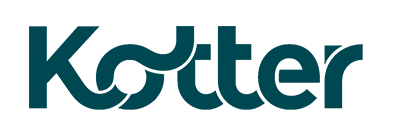Kotter CEO, Rick Western, President of Consulting, Russell Raath, and Founder, John Kotter, preview two new articles designed to help you better weather the COVID-19 induced downturn, lead through a crisis, and learn more about what post-recession winners know and do.
Below is the transcript of this conversation surrounding change, the economic crisis, and the future.
__________________
Rick Western, CEO, Introduces “Launching a New Perspective” Video Series
Hi, I’m Rick Western CEO of Kotter, and I’m joined today by Russell Rath, the president of Kotter consulting and John Kotter, our chairman and co-founder. We’d like to introduce two articles that we’ve recently penned, dealing with the COVID-19 crisis. The first co-authored by Russell and myself, lays out an actionable roadmap for leaders based on an analysis of post recession leaders and organizations that have been winners in other downturns.
The second, co-authored by John and two of our other Kotter colleagues, Gaurav Gupta and Vanessa Ahktar deals with our ongoing examination of brain science, and how that relates to how people are likely to act, behave and react in COVID-19 crisis and what that means for leaders? Russell, I guess the first question I’d ask you, on the article that we wrote together, what would you say is the key insight that you’d like people to take away?
Key Insight on “There is a Better Way to Weather the Downturn: What Post-Recession Winners Know and Do ” from Russell Raath, President of Consulting
Thanks, Rick. I think what we saw essentially, when this was happening is three kinds of companies. There were those where the handbrake has essentially been pulled and everything stopped immediately; think about your hospitality companies. There were those where the brakes were pumped a little bit but things gradually sort of got back to, if not normal, at least a semblance of normal. And those where it was like a roller coaster; where they just shut out in terms of, thinking about healthcare or the suppliers and supply chains of those products that we’ve been consuming and abundance of, and some of them went into it with a really strong cash position and some went into it with with a, frankly, really weak cash position.
Regardless, the role of executives and offices in the company is really how you deploy and the decisions you make around those resources. And with all of the uncertainty around the financial resources, what we found was that the winners know that the best asset to leverage right now is the non financial asset, the human capital. And the way that they did that is that they understood that fear, which is largely biological, and cannot be managed, per se, can actually and should be anticipated and controlled. They did this and they figured out three things: they figured out that we don’t thrive well, if we have a lack of predictability, if we don’t know what’s coming next. We don’t thrive well, if we don’t feel like we’re in some element of control. And we don’t thrive well, if we don’t know that there’s a future state. And the fact that they figured out these things and figured out how to manage or at least control some of the elements that made us feel the way we did is the key in a case to frankly, harnessing some unprecedented potential from the human capital. So that was probably the most surprising. It wasn’t the financial triggers that they may have taken, which indeed a lot of them needed to and have have done.
John, you’ve written a library of books and articles over the years on change. Seeing this now, as you reflect over everything that you’ve ever seen, how is this different or the same from prior downturns or what people are trying to go through?
John Kotter on Today’s Situation in Comparison to Prior Downturns
It’s both different and the same. The big difference is it it’s just a step function up in terms of speed and certainty and everything else. The trend toward a faster moving, less predictable world has been going on forever, boosted by the Industrial Revolution, and then by computers and the Internet. So you get lots of graphs that show things changing faster and faster. But in the last month, it’s not a continuation of that it almost jumped vertically. So what we’ve learned over the years about change, in my opinion, is more relevant today by some factor than it was four weeks ago. But it is the most extreme form of change and uncertainty than any of us have seen in our lifetimes.
We had been studying human nature via brain science for the last three or four years, what people have learned, and it’s really very interesting and relevant now because current conditions, and this relates to what you were saying Russell about fear, are putting people into a panic. We have in us, all of us because of the way we’ve evolved over time, a very, very strong survival system that looks for threats and tries to engage very quickly and with a lot of energy to either fight the threat or to run away from it, and to get back to normal. That system is for lots of people, and for lots of organizations right now, in overdrive, it’s overheated. And an overheated state, survive, does not even do a good job of dealing with short term problems because you’re kind of running in circles. And, more importantly, it absolutely kills our capacity to think in terms of opportunity to think terms of what is possible.
All crises offers opportunities. And right now, I suspect we’re going to find, not only some companies struggling in the short term, even more so and this is what you too have written about. They’re going to drive themselves inadvertently and their workforces, so deeply into a panic induced down, that no innovation is going to happen over the next six months or two years. And when the recession begins to let up, and there’s an opportunity to really grow once again, they’re going to be positioned terribly because again, no innovation during the interim. This is a, I mean, it’s a bit bizarre or awkward or creepy to talk about opportunity in a situation in which death is a daily reality right now, but the truth is we’re going to see some big differences in terms of how well companies handle and make decisions that either go with a realistic understanding of human nature and position them better in the short term in the long term, or go with a not scientific understanding of human nature and inadvertently really get themselves in trouble.
__________________
Well, there you’ve got it. Two articles, both dealing with the current crisis. We hope that you enjoy both. More importantly, we hope you get value out of both. And stay tuned because we’ll create some additional videos digging deeper into some of the key aspects of each. But for now, bye be safe and be well.
Discover more with Kotter.
Learn more by viewing our Research + Insights page.





